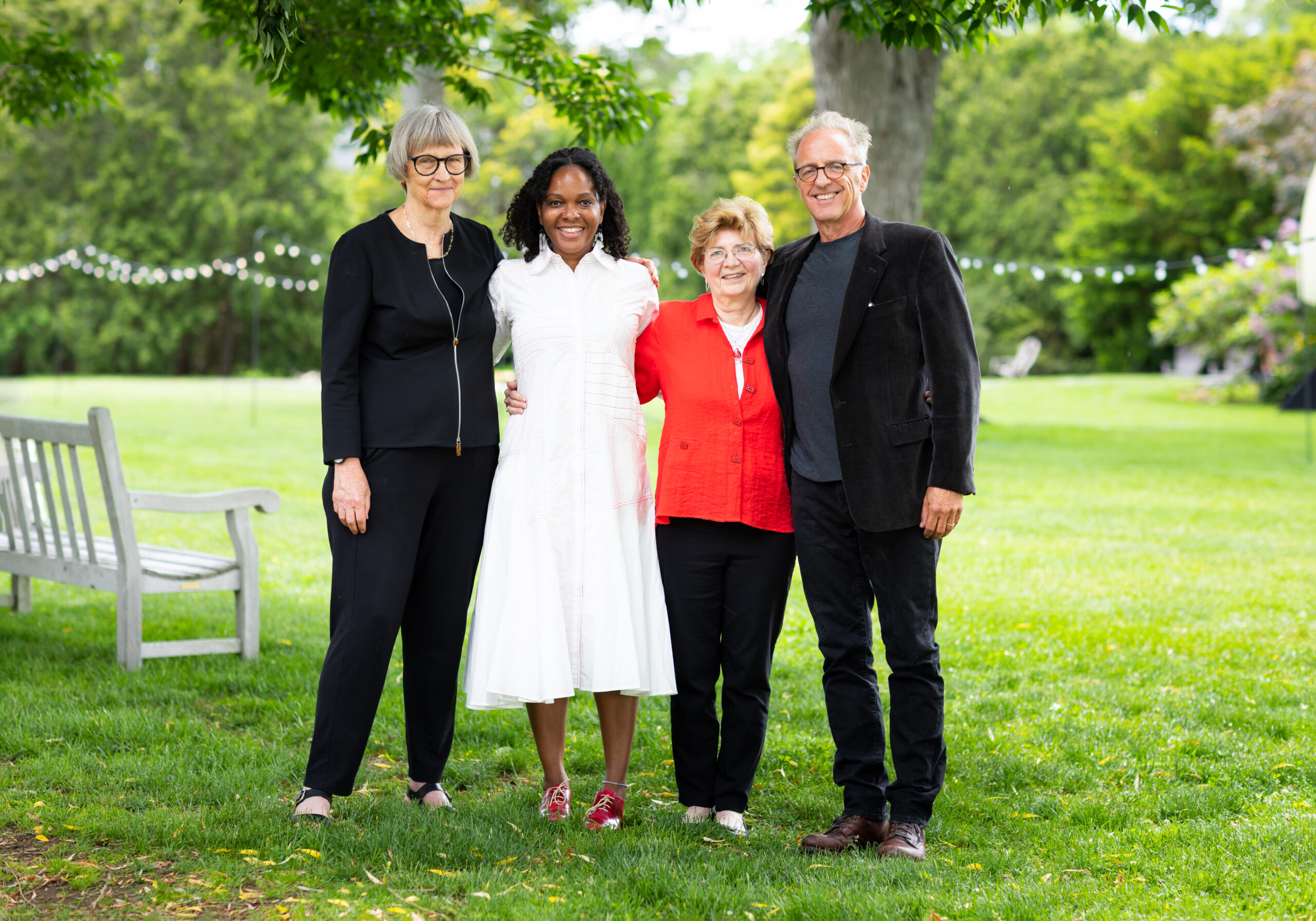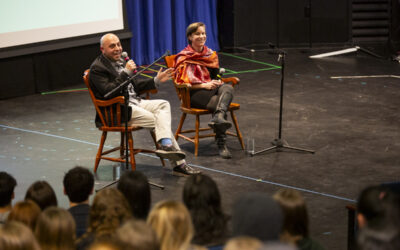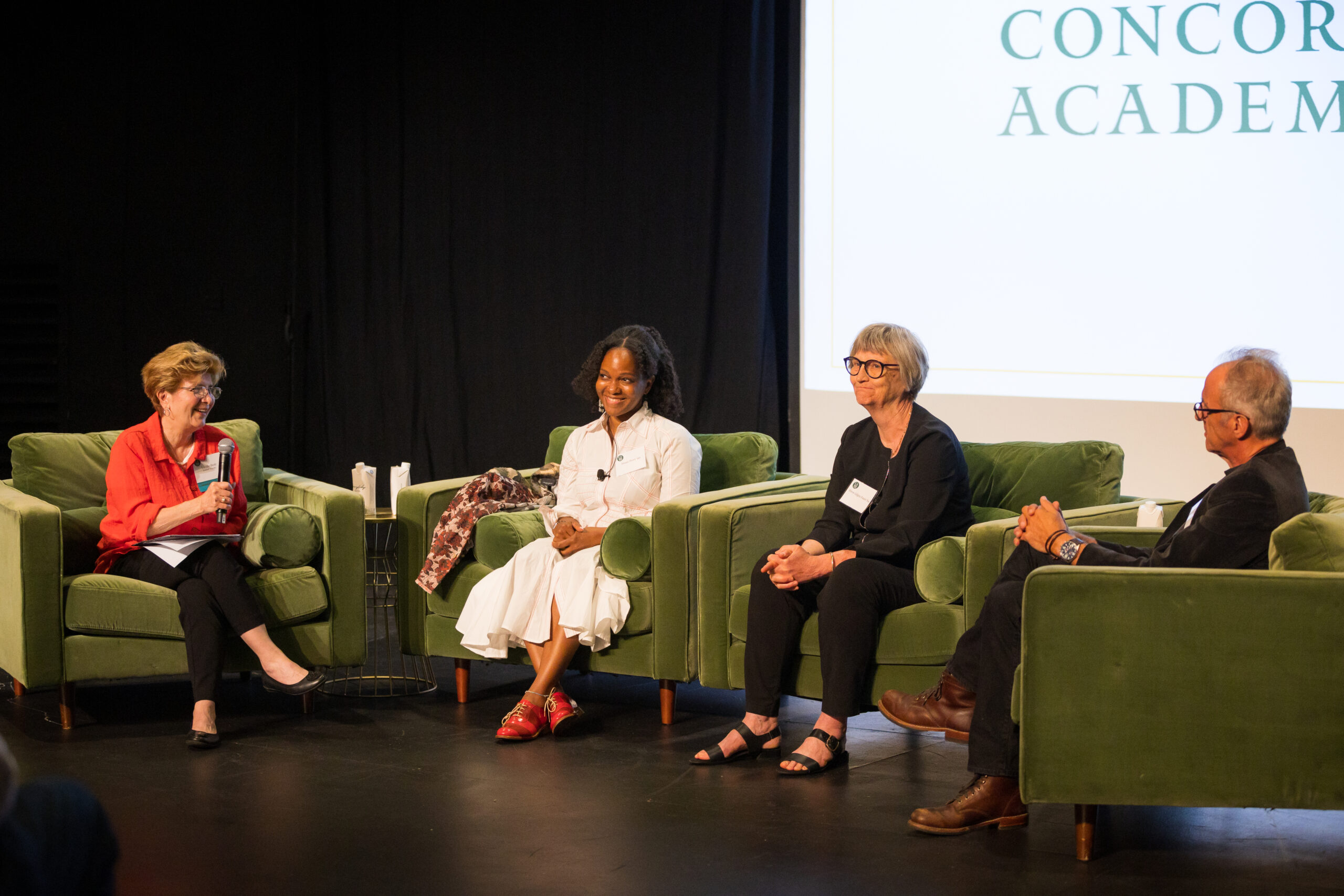
Since one of Concord Academy’s most beloved traditions is senior chapels—a form of sharing and listening that resonates for alums and current community members alike—it was fitting that the Centennial Speaker Series, “CA’s Mission in Motion,” opened on June 10 with a focus on personal storytelling. More than 400 attendees filled the Performing Arts Center for “The Power of Personal Stories,” a conversation among critically acclaimed authors Drew Gilpin Faust ’64, David Michaelis ’75, and Imani Perry ’90.
Head of School Henry Fairfax said in his introduction that there was “no one better to guide” a dialogue about this core of the CA experience than former CA faculty member and administrator Lucille Stott, author of CA’s Centennial book, Concord Academy at 100: Voices from the First Century. Having connected with more than 300 alums to write that cultural history, Stott proved the ideal individual to tease out the common strands between historical narrative, biography, and memoir, as well as the possibilities of change and renewal that stories can embody.
With wry humor, biographer Michaelis recalled some early experiences that later translated into research skills, including his mother’s habitual late arrival at the cinema, which led him to piece together the plots of movies already in progress, and his own observations as what he called a “sleepover artist” of how other families shared stories and concealed secrets. He said that “ambassadorship into family” led him to realize that he loved, in particular, the life story. Michaelis committed to the form, he said, because biography presents “many versions of the same person” and can contain them all. Michaelis described his most recent subject, Eleanor Roosevelt, as having a life that kept opening up as she worked to expand democracy, “transcended her own life pain,” and “found her humanity in others.” For Michaelis, that is the lesson Concord Academy and life stories also both offer: “that you are who you are because of who everybody is.”
Perry, a celebrated writer and the Hughes-Rogers Professor of African American Studies at Princeton University, shared that telling and listening to stories had always been part of her self-definition, particularly among family in Birmingham, Ala. It wasn’t until she took a writing seminar at CA with Philip McFarland P’80 ’84, however, that she said she “experienced the transition from a deep association with storytelling as where you live to storytelling as … what you do in a textual form.”
For Faust, a historian and trailblazing president emerita of Harvard University, stories were a way of imagining a future she might forge. Growing up in Virginia at a time when little was expected of women, she had no real-life role models, she said. So she cast them from literature: the ever-capable fictional girl detective Nancy Drew and the self-reflective diarist Anne Frank. “It was really books and the privilege of being able to delve into so many different stories that made me think, OK, I need to write my own story,” Faust said. She referred to both how she shaped her own life’s path and her decision to set down her personal narrative in a forthcoming memoir, Necessary Trouble, “so others can read something that maybe will give them the possibility of imagining something about the world in which they want to live.”
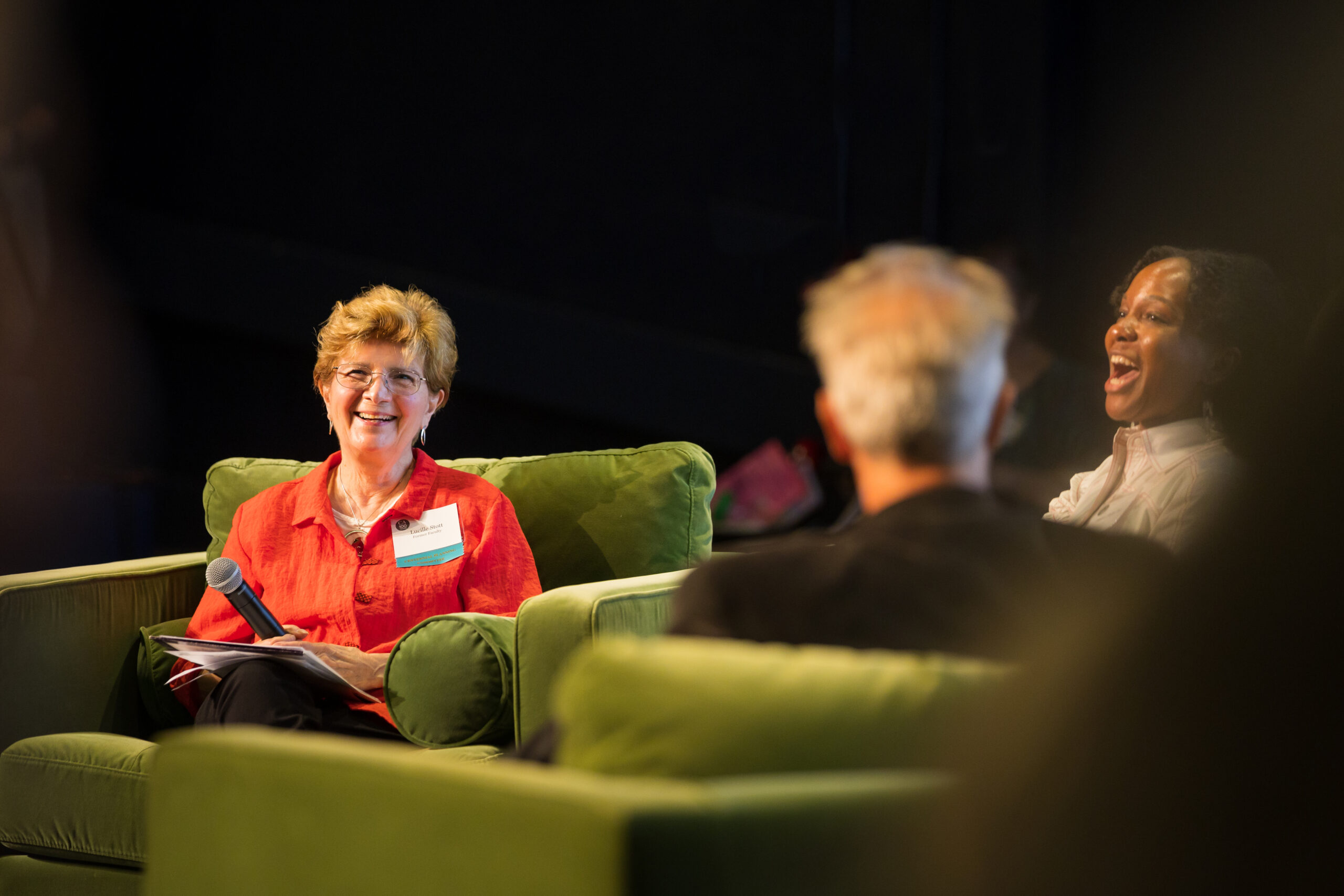
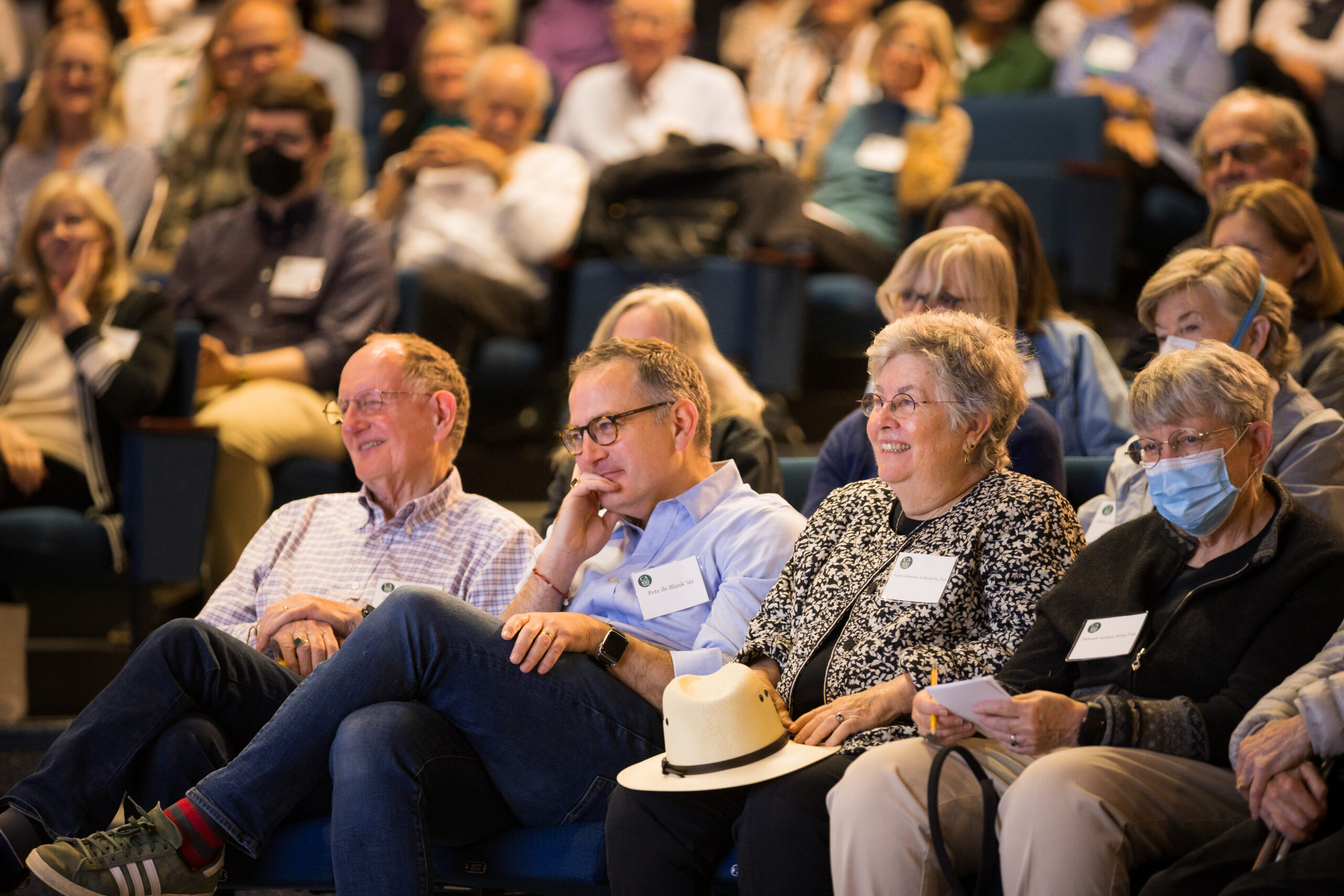
Considering how they came by the stories they have chosen to tell, the three writers offered different perspectives. Michaelis said his subjects have come to him “because my strangeness matches the strangeness of the subject and there’s some way in.” What hooked him on Eleanor Roosevelt were some notes his mother had made when she worked with the former first lady at WGBH on a monthly television show, which he uncovered one day in a safe deposit box—tantalizingly unfinished notes that left him with a sense that he had to finish the book, which became Eleanor.
For her part, Perry said she chooses stories she is surprised haven’t been told yet—for example, the long public life of the Black national anthem, “Lift Every Voice and Sing,” or the life story of the “relatively invisible” playwright Lorraine Hansberry, who before Perry’s biography was published had been known almost exclusively in association with her play A Raisin in the Sun, but not for her remarkable social activism.
Perry said what drives her curiosity is the intellectual exercise of figuring out how to tell stories, “to be resourceful and to be creative, and to … try to do justice to the subject.” In her 2022 National Book Award-winning South to America: A Journey Below the Mason-Dixon to Understand the Soul of a Nation, Perry said she attempted not to create a conventional history but rather a tapestry. When she was a child, her grandmother frequently urged her to put more sugar on her cereal, “to offer more sweetness in a life that had a lot of bitterness,” Perry explained. “I wanted to be able to tell stories that could get at that: intimacy and cruelty,” she said, “these things that didn’t fit into the way of telling … history in a formal sense, … both the sense of the past and how it persists inside us.”
For Faust, a drive to understand “how human beings can be so terrible to one another” led her to write several books about the Antebellum South and the Civil War. The fascination was in part personal: She had wondered as a child how everyone around her had come to accept a segregated white society. “What compromises do we make with ourselves—what stories do we tell ourselves—to enable these kinds of inhumanities?” she asked.
As a historian and a self-identified member of “the old guard,” Faust said she recognized the experiences she had during a societal transition had not been well understood. Her memoir of her early years includes the experiences she had of encountering a broader world at CA. “Concord Academy freed me,” Faust said. “This school was the absolute essential for my having been able to live the kind of life that I’ve been blessed to lead, and it was here that I was freed from the kinds of constraints that I was struggling to find a way out of.”
